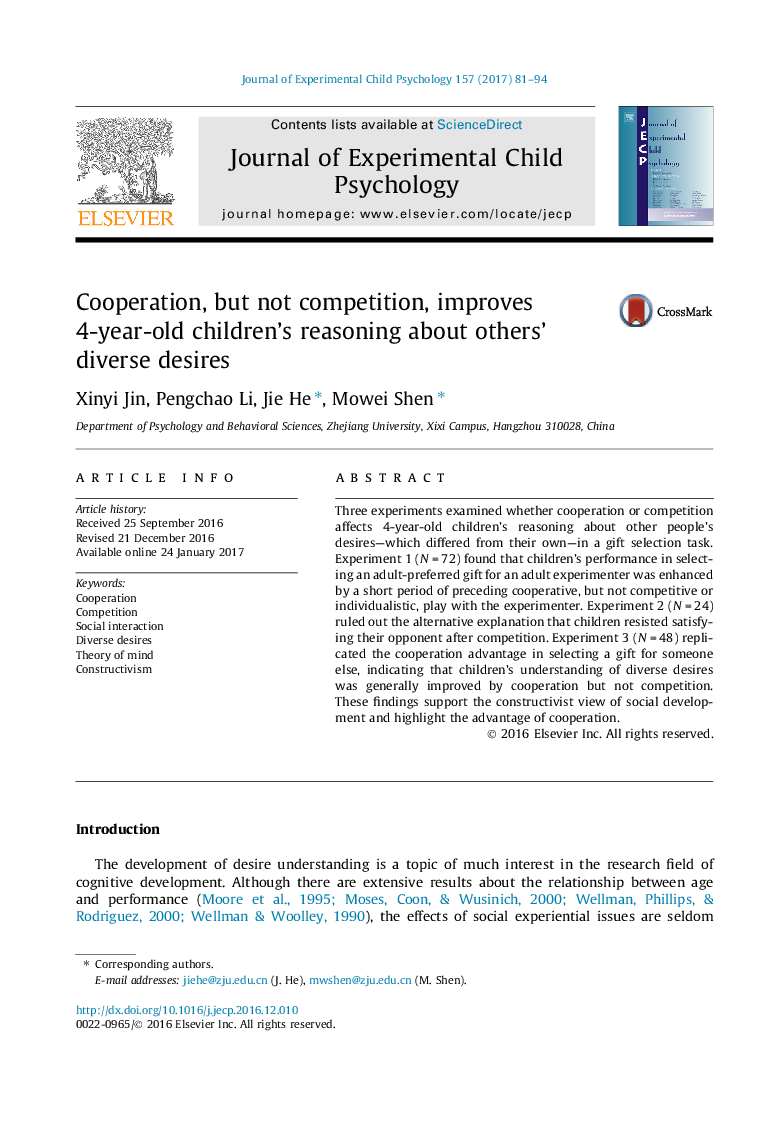| Article ID | Journal | Published Year | Pages | File Type |
|---|---|---|---|---|
| 5040047 | Journal of Experimental Child Psychology | 2017 | 14 Pages |
â¢Children aged 5, not 4, can reason about other's diverse desires flexibly.â¢A 3-min cooperation enhanced 4-year-olds' desire reasoning generally.â¢Competition showed no significant influence on desire reasoning.â¢Children were willing but unable to satisfy other's desire after competition.
Three experiments examined whether cooperation or competition affects 4-year-old children's reasoning about other people's desires-which differed from their own-in a gift selection task. Experiment 1 (NÂ =Â 72) found that children's performance in selecting an adult-preferred gift for an adult experimenter was enhanced by a short period of preceding cooperative, but not competitive or individualistic, play with the experimenter. Experiment 2 (NÂ =Â 24) ruled out the alternative explanation that children resisted satisfying their opponent after competition. Experiment 3 (NÂ =Â 48) replicated the cooperation advantage in selecting a gift for someone else, indicating that children's understanding of diverse desires was generally improved by cooperation but not competition. These findings support the constructivist view of social development and highlight the advantage of cooperation.
